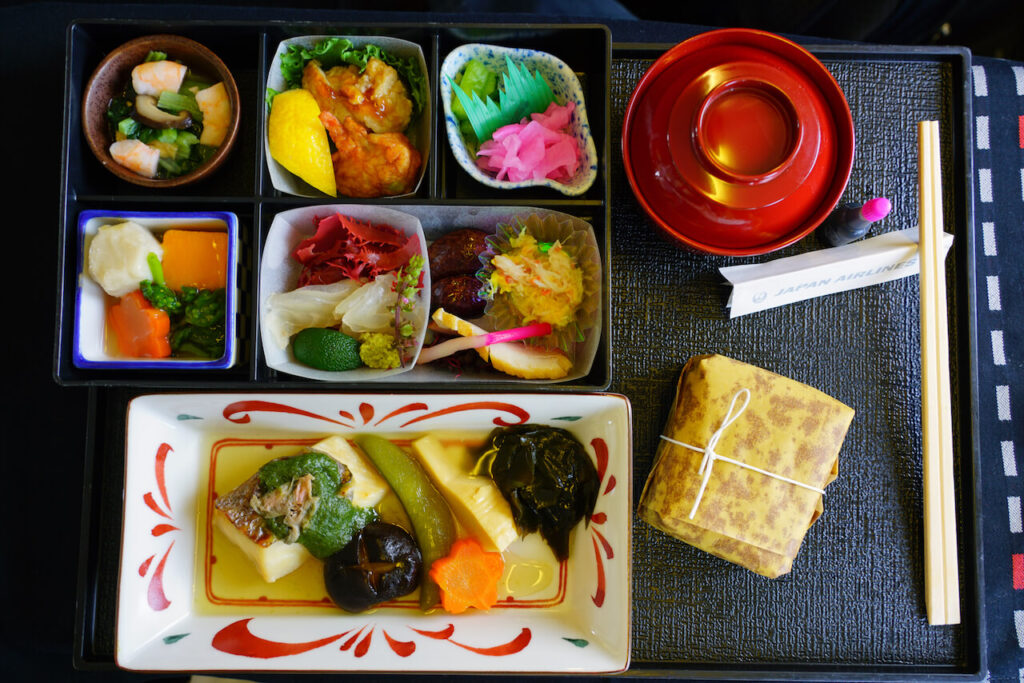As an effort to reach its sustainability goals, Japan Airlines aims to recycle all food and cooking waste from its flights into fertilizer.
JAL Royal Catering, the group leading this initiative, reported that a total of 48 tons of vegetable waste was produced in 2019. From this, only 7.7% was recycled. By 2025, JAL aims to recycle 100% of its food waste into fertilizer through composting.
JAL is also hoping to lessen food wastage through preparation and rewarding waste-conscious efforts. For instance, passengers who opt to cancel their in-flight meals prior to boarding will be given free eye masks. The airline plans to implement this across all its international flights by 2025.
In 2020, JAL introduced its “JAL Ethical Choice – Meal Skip Option” on select flights. Passengers who skip or choose to sleep through the in-flight meal service would be given an upgraded amenity kit.
JAL isn’t the only airline to take forward movement in reducing food waste.
Swiss Air is trialling an initiative by selling left-over economy meals on the last flight of the day.
In partnership with Too Good to Go, an app-based platform that connects companies with users, the airline is selling unsold food to users from the day’s flights at reduced prices.
In October of 2020, Emirates announced a plan to reduce food waste by rolling out a management system to determine which ingredients are most wasted during the catering process.
A 2018 report by IATA found that airlines generated around 6.7 million tons of cabin waste, of which at least 20% were unconsumed food and drink.

